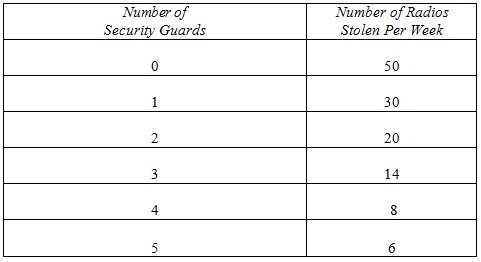Suppose that a hog-producing firm has been dumping its wastes into the local river. The government taxes the sale of hogs to pay for the cost of the river cleanup. As a result
a. more hogs are produced and the price falls
b. more hogs are produced and the price increases
c. fewer hogs are produced and the price falls
d. fewer hogs are produced and the price increases
e. quantity produced doesn't change but the price increases
D
You might also like to view...
Suppose the equilibrium price in a perfectly competitive industry is $10 and a firm in the industry charges $9 . Which of the following will happen?
a. The firm will not sell any output. b. The firm will sell less output than its competitors. c. The firm will make more profit than it could at the $10 price. d. The firm will make less profit than it could at the $10 price. e. The firm's revenue will increase and its costs may decrease.
If capital is specific to manufacturing and land is specific to agriculture, then migration of labor from lowincome to highincome countries will cause:
a. the wage to rise in the highincome country and the wage to fall in the lowincome country. b. the wage to fall in the highincome country and the wage to rise in the lowincome country. c. the wage to rise in both the highincome and low income countries. d. the wage to fall in both the highincome and low income countries.
A radio manufacturer is experiencing theft problems at its warehouse and has decided to hire security guards to reduce the thefts. The firm wants to minimize the net cost of warehouse thefts. Given the above info, in order to minimize the NET cost of theft, a firm should choose the level of theft prevention at which
Given the above info, in order to minimize the NET cost of theft, a firm should choose the level of theft prevention at which
A. the total benefit of theft prevention equals the total cost of the theft prevention. B. the marginal benefit of theft equals the marginal cost of the theft. C. the total cost of theft prevention equals the total cost of preventing theft. D. theft is eliminated. E. the marginal benefit of theft prevention equals the marginal cost of preventing theft.
The law of demand states that the quantity demanded of a good is inversely related to the price of that good. Therefore, as the price of a good goes:
A. down, the quantity demanded stays the same. B. up, the quantity demanded goes down. C. up, the quantity demanded also goes up. D. down, the quantity demanded goes down.